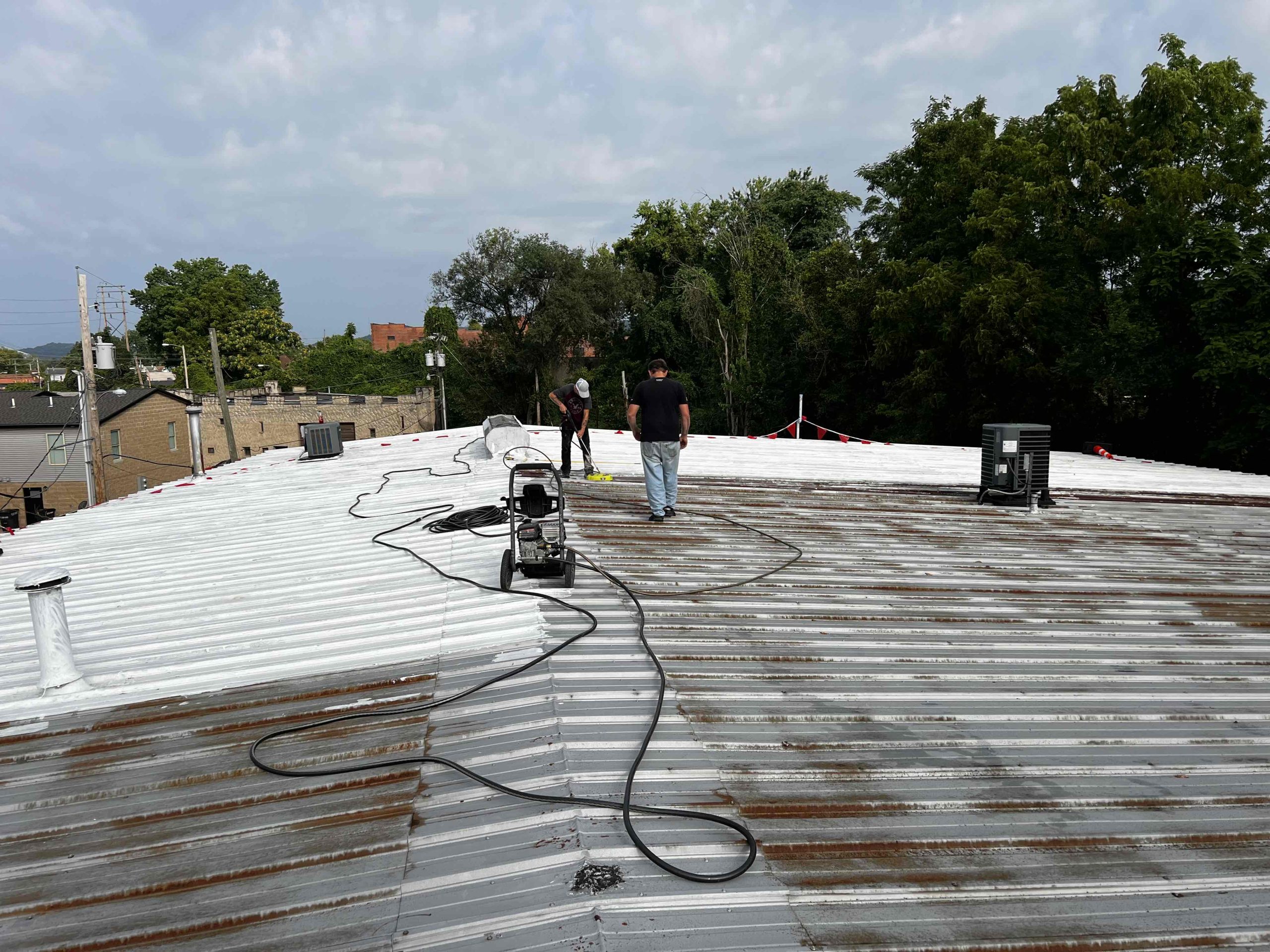Call Today! 304-396-7729

When it comes to residential and commercial roofing, flat roofs have become increasingly popular in recent times. With a unique modern aesthetic and a range of functional benefits, this roofing style is an especially attractive option for commercial spaces and contemporary homes in the Huntington and Charleston areas. As an experienced local roofing contractor, The Roof Doctor is dedicated to providing informative and useful content related to a variety of roofing topics and concerns.
This in-depth exploration of flat roofing essentials empowers Huntington and Charleston-area homeowners and business owners to make informed decisions related to their building’s roofing needs. Rely on The Roof Doctor for reliable, quality roofing services that ensure the lasting performance and integrity of your flat roofing system.
The variety of materials available for flat roofing solutions caters to different needs and preferences. The most common flat roof materials include:
1. Built-up Roofing (BUR): Comprising multiple layers of asphalt, roofing felt, and other materials topped with a protective layer of loose gravel, BUR offers durability and longevity at an affordable price.
2. Modified Bitumen: This type of roofing combines asphalt with rubber-based polymers, resulting in a stronger material. Modified bitumen roofs can be applied in multiple layers or as a single-ply membrane, providing excellent weather resistance and energy efficiency.
3. Single-Ply Membranes: Made from flexible, synthetic materials, single-ply membranes are available in various types, including EPDM (ethylene propylene diene monomer), PVC (polyvinyl chloride), and TPO (thermoplastic olefin). Each material has its pros and cons, including durability, flexibility, reflectivity, and ease of installation.
By understanding the unique qualities of each roofing material, you can determine which option best suits your needs, budget, and aesthetic preferences.
Flat roofing systems offer numerous benefits, making them an attractive choice for both residential and commercial buildings:
1. Enhanced Space Utilization: Flat roofs provide additional outdoor space that can be used for solar panel installation, HVAC systems, green roofing, or rooftop patios and gardens.
2. Aesthetics: Flat roofs complement contemporary architectural designs, lending a sleek, modern appeal to commercial and residential structures.
3. Ease of Installation and Maintenance: Flat roofs’ simple design makes installations, repairs, and maintenance relatively straightforward, reducing labor costs and additional expenses.
4. Energy Efficiency: Certain flat roofing materials are highly reflective and can help reduce energy costs by deflecting sunlight and minimizing heat absorption.
Investing in a flat roof system guarantees long-term benefits such as efficiency, versatility, and modern appeal.
Effective drainage plays a crucial role in the health and longevity of any flat roofing system. It is essential for preventing water accumulation and subsequent problems, such as leaks and structural damage. To ensure proper drainage, keep the following tips in mind:
1. Regular Maintenance: Inspecting and maintaining your flat roof on a routine basis is vital in identifying and addressing drainage problems early.
2. Adequate Slope: Flat roofs should have a minimal slope of around 1/4-inch per foot to facilitate water flow towards the drainage system.
3. Appropriate Drainage Solutions: Install roof drains, scuppers, and internal gutters to channel water away from your flat roof efficiently. Consult with a professional roofing contractor to determine the most suitable drainage system for your building.
4. Debris Removal: Clear leaves, branches, and other debris from your roof and drainage systems regularly to ensure water flows unobstructed.
Proactive measures to maintain proper drainage can significantly extend the life and performance of your flat roofing system.
Proper care and maintenance are essential to the longevity and performance of any roofing system. To safeguard your flat roof investment, keep the following tips in mind:
1. Routine Inspections: Schedule biannual inspections with a professional contractor to assess your roof’s condition and preemptively address potential issues.
2. Proactive Repairs: Make repairs as needed to prevent minor issues from escalating into significant damage. Addressing problems like punctures, cracks, or leaks promptly will extend your flat roof’s lifespan.
3. Debris Removal: Regularly remove debris accumulation on your flat roof. Excessive debris can lead to blocked drains, water pooling, and mold growth.
4. Sealing and Waterproofing: Ensure that your flat roof’s sealing and waterproofing are in good condition, maintaining the structural integrity and protection against moisture damage.
By following these maintenance best practices, you can maximize the longevity and performance of your flat roofing system.
Selecting the ideal contractor for your flat roof installation, maintenance, or repair is crucial in ensuring the highest quality of workmanship and the effectiveness of services rendered. To find the right contractor:
1. Seek Recommendations: Ask friends, family, or neighbors for roofing contractor referrals. Personal recommendations are invaluable in gauging a contractor’s reliability.
2. Check Credentials: Verify that the contractor has the necessary licenses, certifications, and insurance for providing roofing services in your area.
3. Request References: Reputable contractors should have a list of previous clients who can vouch for their work quality, adherence to deadlines, and professionalism.
4. Evaluate Experience: A contractor with extensive experience working with flat roofs will be more proficient in installations, repairs, and maintenance.
By taking these factors into consideration, you can confidently select the best roofing contractor to address your flat roofing needs.
Flat roofing systems are a popular, versatile, and cost-effective solution for residential and commercial properties in Huntington and Charleston. By exploring the types of flat roofing materials, understanding their advantages, recognizing the importance of proper drainage, practicing regular maintenance, and choosing the right contractor, property owners can make informed decisions regarding their building’s roofing requirements.
With expert guidance and quality services from The Roof Doctor’s local roofing contractor, you can enjoy the lasting benefits of a well-maintained flat roofing system.